

Post-consumer recycled plastics (Post Consumer Recycling, PCR) refer to raw materials that are collected from households or by businesses, industries and organizations through recycling channels and used as end-users of products, which can no longer be used for their original purpose. Plastics, including plastics returned from the logistics distribution chain, such as: used food and daily chemical , household appliances, car dismantling, etc.
In addition to post-consumer recycled plastics, "recycled plastics" also include post-industrial recycled plastics (i.e., post-industrial recycling, PIR). The general raw materials come from factory production and are diverted from excess waste streams due to processing technology (Commonly known as nozzle material), sub-brand material, defective products, etc. These materials can often be recycled well and are not easy to leak into the environment.
1. The difference between PCR and PIR
Asia is the main production area for the supply of recycled plastics. However, due to the relatively lagging development of the recycling system, traditional plastic recycling is still aimed at reducing costs, and does not emphasize the distinction and importance of "post-consumer (PCR)" and "pre-consumer (PIR)". The market has vague concepts, unknown sources, unclear classifications, and even "fake" quality risks, which have become an obstacle for it to enter the international market. Therefore, how to regulate the PCR market and prevent bad money from driving out good money is an urgent problem to be solved.
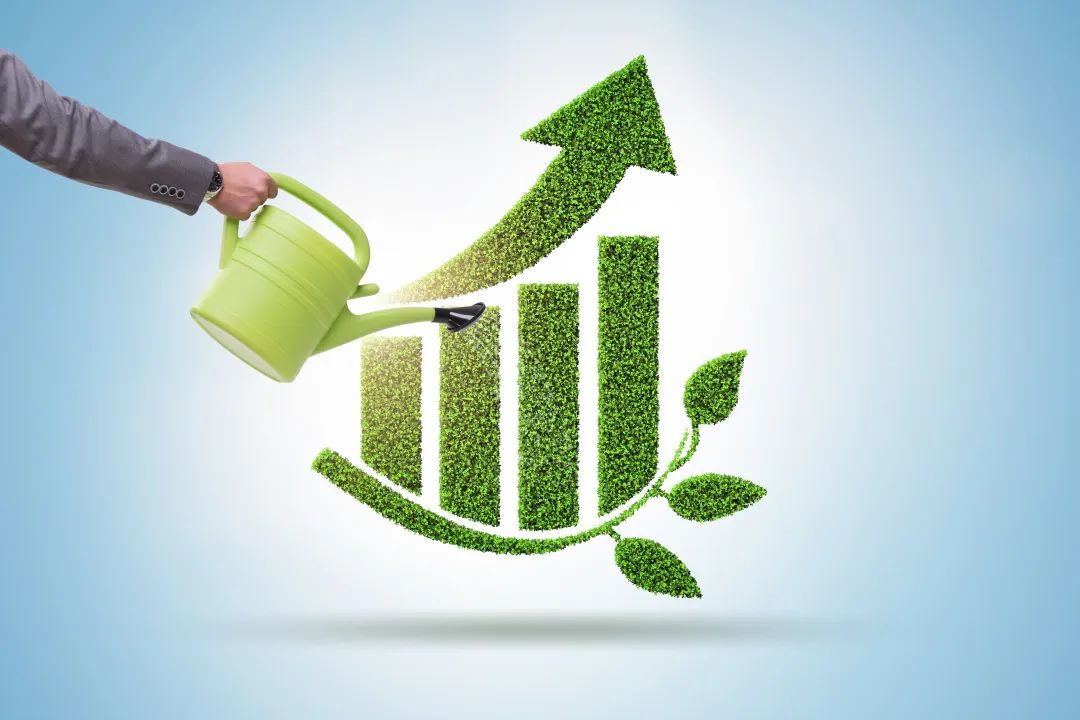
Obviously, the volume of PCR is much higher than that of PIR. If the plastic waste that completes the consumption mission is not recycled, it will bring huge pollution every year. Therefore, "post-consumer recycled plastics" have higher environmental significance and market value. The "proportional use of recycled plastics" advocated by consumer product brands is all "post-consumer recycled plastics."
"Post-consumer recycled plastic (PCR)" is the recycled plastic that the plastic value chain really needs to recycle in order to achieve sustainable development goals.
2. The international common PCR traceability certification system
The "post-consumer recycled plastics (PCR)" traceability certification system is a plastic recycling enterprise, which proves to the downstream that the recycled plastic granules/bottle flakes/fiber products it produces are qualified from the identification, procurement, transportation of waste plastic raw materials to the factory's regeneration production. Full chain traceability information. Certified materials are environmentally friendly materials that truly recycle post-consumer plastics and reduce plastic pollution.
The common PCR traceability certification system currently on the market is based on the internationally accepted ISO standard definition. For example: GRS, RCS, UL2809, SCS, etc.
01 GRS

The global recycling standard was formulated by CU (Shiyou Certification) in 2008 and transferred to TE in 2011 (GRS holder organization - TE, TextileExchange, Textile Exchange, other projects under TE include RCS, OCS, RWS, RDS, RMS, etc.), detonated by many international clothing brands, from raw materials-production-processing-trade-brand. Every stage of production must be certified, starting with the recycling stage.
Applies to products that contain at least 20% recycled material. If it is necessary to use the GRS logo to hang on the product, the recycled content of the product shall not be less than 50%.
Developed for the needs of the textile industry, based on the ISO14020 series, it is a multi-attribute product certification. Valid for one year, annual review system.
02 RCS
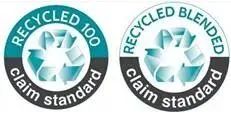
Recycled content declaration standard certification, launched in 2013, the RCS certification standard is much lower than the GRS standard, and is suitable for products with a recycled material content between 5% and 100%. The RCS certification content only involves the chain of custody of production and marketing.
The standard used by RCS is the regulatory requirement of (CCS). The purpose of RCS certification is to ensure that products contain recycled materials, so that consumers can believe that the products they buy contain recycled materials.
GRS is an advanced version of RCS: RCS products can use GRS certified raw materials, but GRS products cannot use RCS raw materials.
If the enterprise cannot meet the relevant requirements of social responsibility, environmental management or chemical use stipulated in the GRS standard in the short term, but hopes to pass effective proofs in the upstream and downstream of the supply chain or communicate with end consumers in products The content of recycled content can apply for RCS certification.
03 UL2809
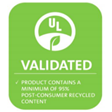
Product level certification for recycled plastic content. Suitable for all product types, such as plastic and its products, mobile phones, computers, toys, kitchen utensils, clothes, etc.
Information required to complete certification:
(1) Complete product composition specification
(2) The address of the manufacturer of the certified product
(3) Production flow chart
(4) Declaration of recycled material suppliers
(5) List of materials listing all ingredients and relative weights and their recycled material content calculations
(6) Receiving records of recycled materials + delivery records of suppliers
(7) Production records
04 SCS
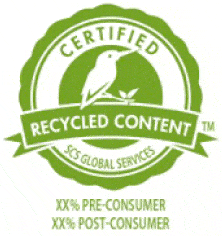
An international leading third-party environmental certification and standard development service organization, focusing on the fields of environment, sustainability, food safety and quality.
Based on the ISO14021:1999 framework, the product certification of single-attribute self-environmental declaration is valid for one year and is subject to annual review.
Production/purchasing data collection + on-site audit, the audit report is certified by the American reviewer.
Recycled Plastic Content Certification (RCC):
(1) Recycled content certification can help manufacturers of building products, paper products, plastics, packaging, textiles, clothing, jewelry, etc. achieve their sustainability and circular economy goals.
(2) Evaluate products made from pre-consumer or post-consumer materials diverted from waste. This certification aims to measure the % of recycled plastic content in order to provide manufacturers with independent third-party accurate claims in market transactions.
3. China's PCR traceability certification system
Different from the definition of international standards and the PCR certification system, China's relevant plastic standards do not specify that recycled plastics should have "post-consumer" attributes, nor do they require the authenticity and compliance of post-consumer recycled plastics and their cutting-edge raw materials Perform traceability identification. Faced with the demand for high-quality "post-consumer recycled plastics" in the global plastics industry chain that has begun to explode, PCR traceability is an urgently needed identification tool for the industry.
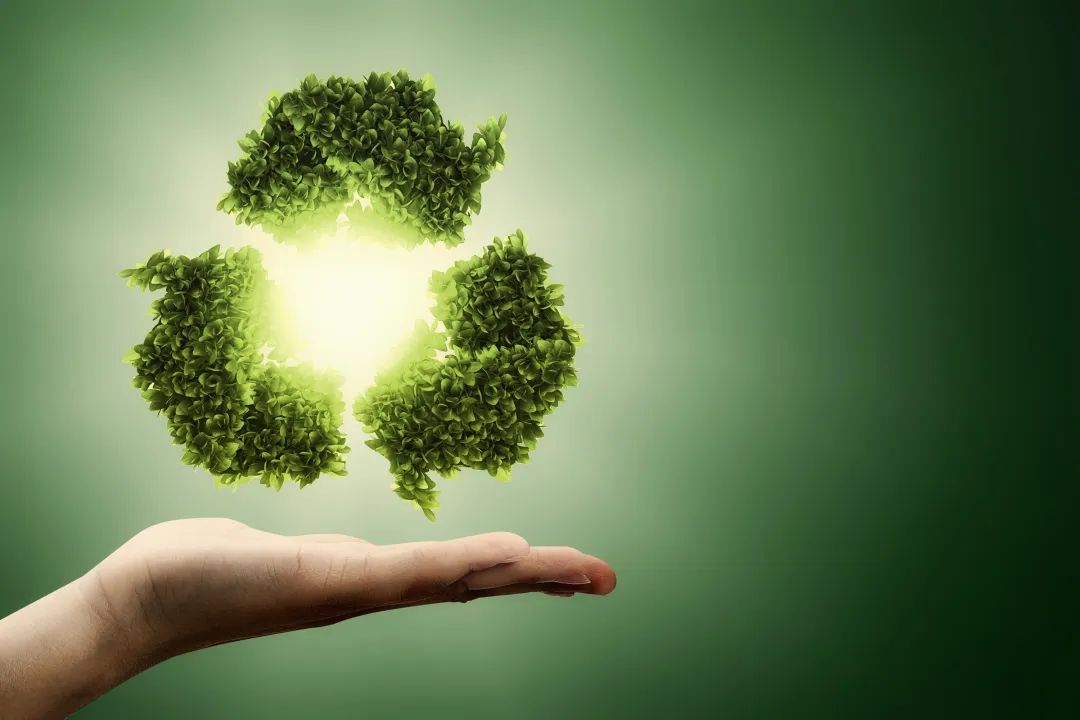
At present, China Synthetic Resin Association Plastics Recycling Branch (CPRRA) and Beijing Zhenhui Environmental Protection Material Technology Co., Ltd. are developing China's first traceable "post-consumer recycled plastics (PCR)" in response to the demands of multiple PCR procurement brands. In order to make up for the decline in the credibility of some current certification systems, it is inevitable to avoid risks in the PCR front-end incoming materials and regeneration process.
And in the near future, it will promote PCR-certified products to be widely accepted internationally, and can be matched with the International Recycled Plastics Association and international certification companies to achieve mutual recognition, helping post-consumer recycled plastics manufacturers to enter a wider market.
4. Inventory of relevant national policies
01 United States
The American Chemical Society (ACS) proposed to the U.S. Congress to mandate the use of 30% recycled materials in packaging.
The American Chemical Society issued a five-point action plan on July 13, 2021, arguing that the U.S. Congress should take measures to increase plastic recycling rates.
02 European Union
By 2030, some beverage bottles must contain at least 30% recycled plastic.
In 2019, the European Parliament and the Council of the European Union issued the "Directive on Reducing the Environmental Impact of Specific Plastic Products" (EU2019/904), which stipulates that by 2025, the proportion of recycled plastics in some PET containers should not be less than 25%. By 2030, some beverage bottles must contain at least 30% recycled plastic.
03 Australia
By 2025, plastic packaging will contain 20% recycled content.
The goal of plastic packaging set up in Australia's "National Plastics Plan 2021" is to have 50% recycled content in all packaging by 2025, of which plastic packaging contains 20% recycled materials.
The goal of "prohibiting the export of waste plastics, paper, and tires from the second half of 2020" mentioned in the "2019 National Waste Policy Action Plan" aims to lay a solid foundation for the country to provide sufficient recycled materials and waste raw materials.
04 Japan
By 2035, 100% of all used plastics will be effectively used.
In 2019, the Ministry of the Environment of Japan, through an expert group under the Central Environmental Committee, formulated the final version of its plastic recycling strategy - calling for a 25% reduction in single-use plastic containers and packaging by 2030 and mandatory charges for shopping bags . In addition to this, the strategy also calls for the reuse and recycling rate of plastic containers and packaging to rise to approximately 60% by 2030, and to achieve 100% effective use of all used plastics, including heat recovery, by 2035.
05 UK
Tax on plastic packaging: Recycled materials less than 30% are subject to tax.
On November 12, 2020, UK Revenue and Customs released draft legislation on plastic packaging tax. This new tax applies to plastic packaging produced in or imported into the UK, which must contain at least 30% recycled plastic. It was enacted in the Finance Act 2021 and will come into force on April 1, 2022.
06 India
First Asian country to launch the Plastics Pact: 25% average recycled content of all plastic packaging by 2030.
The "India Plastics Pact" will focus on four 2030 target actions - list single-use plastics; 100% of plastic packaging can be reused or recycled; 50% of plastic packaging is effectively recycled; The average recycled content of all plastic packaging is 25%.
07 South Korea
By 2025, South Korea will increase the recycling rate of plastic waste from the current 54% to 70%.
In December 2020, South Korea plans to reduce plastic waste by reducing the production of plastic products and increasing recycling rates. It is planned that by 2025, South Korea will reduce plastic waste by 20% and increase the recycling rate of waste plastic from the current 54% to 70%.
08 Canada
Aim to use 30% recycled content in all plastic packaging by 2025.
The "Canadian Plastic Pact" organization hopes that by 2025, all of its partners will be able to achieve the following goals: to identify problematic or unnecessary plastic packaging, and then take measures to dispose of it; to achieve 100% reusable plastic packaging Use, recyclable or compostable; to achieve 50% of plastic packaging is recycled or composted; to achieve the use of 30% recycled materials in all plastic packaging.





